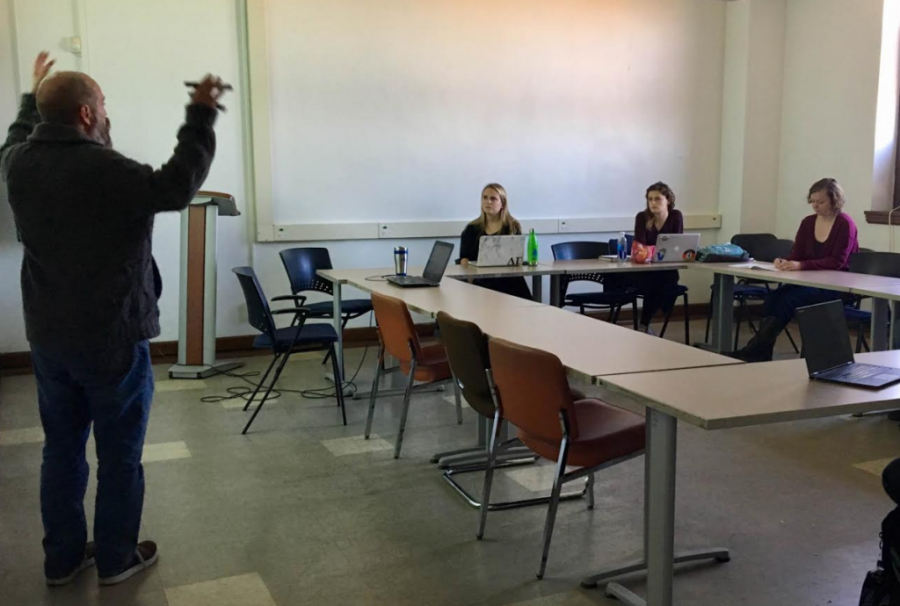Biopsychology professor gets grant, students assist in research
November 8, 2016
Undergraduate and graduate students now have the opportunity to assist Matthew Matell, professor of biopsychology, in his studies on time perception, a project that received grant funding from the National Institute of Drug Abuse.
The majority of the $390,066 grant is being allotted to pay graduate and undergraduate students to work on studies in the rat lab of Tolentine Hall during the summer or the academic year, Matell said.
“Being a part of this lab has been extremely rewarding,” Dillon McGovern, a junior undergraduate student assisting Matell, said. “This experience has allowed me to develop more fully as a student, a critical thinker, and a scientist.”
Other portions of the grant go toward equipment costs, lab supplies and travel for Matell. Some money is also being used to compensate Matell for work through the summer months. The final $90,000 of the grant goes to the University to cover overhead, Matell said.
John Pierce, professor of psychology, said this is an excellent opportunity for students. Exposure to grant-funded research is more accessible here than at other universities because Villanova receives quite a few grants each year.
“I think it’s terrific,” Pierce said. “First of all, it’s a great experience to be able to get out of an undergraduate setting, to know what research is about in a practical sense, as well as the day by day process of how it works. It would certainly look great on a resume or an application for graduate school. I don’t think there’s anything better than to have that.”
Students can get involved by contacting Matell via email. They are then asked to attend meetings with the research team, Matell said. Interested students are expected to first establish themselves as a volunteer in the lab.
“I chose to join the study because the concept of time fascinates me,” said Mitch Breitenbach, another junior Villanova undergraduate student.
“It is the one dimension that humans seemingly cannot perceive, but in Dr. Matell’s lab, it seems that we keep getting closer to understanding the different ways the brain keeps track of time and what the implications of this are.”
Many of the students helping Matell are not psychology majors or minors.
“The only requirement here is interest,” Matell said.
The research covered by this grant has been in the works for multiple years. Matell said he hopes these studies will eventually provide a better understanding of how to help addicts through more effective drug rehabilitation.
Psychologists have previously proven that certain cues elicit a need for a reward, Matell said. For drug or alcohol addicts, these cues may include the sight of a syringe, or the presence of friends, or the context, and these cues provoke the need for the drug. Elongating the time between cue and reward may affect the likelihood for an individual to relapse.
“If there is a temporal component to all this addiction drive, then by changing the time, we can weaken the intensity without potentially having to worry about context,” he said.
To apply for the grant, Matell submitted preliminary data to a subdivision of the National Institute of Drug Abuse. He was expected to prove that his hypothesis about the connection between time perception and motivation had high potential. He cited evidence that his studies were already yielding results.
“Things have changed over the years,” Matell said. “It’s harder to get money from just basic science. Now you have to say, ‘Okay, look, this is the potential for applicability.’”
Other undergraduate students involved in the study include Angeline Gacad , Nicki Ranieri, Olivia Shultz and Ricky Patil. Graduate student Emma Brosseau is also assisting.


